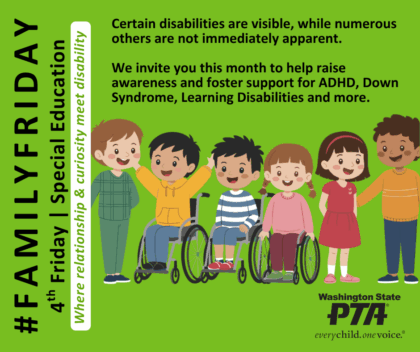 There is no better time than now to raise awareness about disability and the profound ways it can touch all our lives. Whether through a family member, a close friend, or personal experience, most of us are connected in some way to someone with a disability. These shared stories remind us of the importance of keeping the conversation open—about the challenges, the victories, and the common threads that unite us.
There is no better time than now to raise awareness about disability and the profound ways it can touch all our lives. Whether through a family member, a close friend, or personal experience, most of us are connected in some way to someone with a disability. These shared stories remind us of the importance of keeping the conversation open—about the challenges, the victories, and the common threads that unite us.
In our schools, inclusive practices continue to evolve. Classrooms are becoming more adaptive, welcoming, and responsive to the diverse needs of all learners. Special education programs dedicate time to social-emotional learning and adaptive skills development, supporting students with a wide range of disabilities—including but not limited to; autism spectrum disorder (ASD), attention deficit hyperactivity disorder (ADHD), cerebral palsy, down syndrome, vision impairment, and mental health disorders. Each student learns differently, and educators are continually working to understand these differences and adapt teaching approaches accordingly.
Support strategies such as sensory breaks, extended time for tests, and reduced distractions are a part of individualized education plans (IEP) or 504 plans which are essential in creating more equitable learning environments. These accommodations are not about giving an advantage—they are about leveling the playing field, so all students have a fair opportunity to succeed.
The Washington State PTA (WSPTA) is a strong ally and advocate for students with disabilities. WSPTA remains committed to helping families learn and thrive by offering guidance, resources, and advocacy. By being a voice for students of all backgrounds and needs, WSPTA works to ensure that every child—regardless of their abilities—is supported in reaching their full potential.
By raising awareness, embracing inclusion, and advocating for effective support systems, we can create school communities where all students—and their families—feel empowered, respected, and understood. Together, with the support of organizations like WSPTA, we can continue to advocate for the resources and accommodations our students need to learn and thrive.